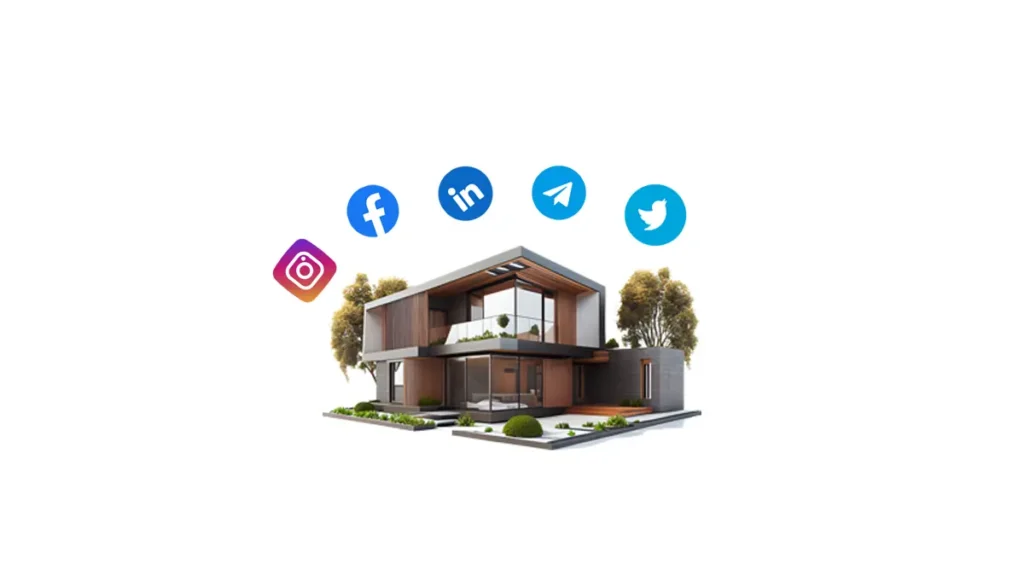Real estate agents must ensure a steady flow of potential clients in their pipeline. While favorable conditions like low interest rates and pleasant weather can bring an influx of clients, it’s essential to be prepared for seasonal slowdowns or market fluctuations that can interrupt your momentum.
Lead generation is the cornerstone of success for real state. But what exactly is real estate lead generation, and how can you harness its potential to grow your business?
Let’s explore the ins and outs of real estate lead generation, from understanding the basics to implementing effective strategies, utilizing the right tools, and measuring success through key metrics. Whether you’re a seasoned real estate professional or just starting out, this guide is designed to help you navigate the ever-evolving landscape of lead generation.
Real Estate Lead Generation: An Overview
Let’s start with the fundamentals!

Definition of Real Estate Lead Generation
Real estate lead generation refers to the process of identifying and attracting potential clients or prospects who have expressed an interest in buying, selling, or investing in real estate properties. These leads are individuals or entities that could become your future clients, and the goal is to nurture and convert them into actual transactions.
Why is Real Estate Lead Generation Important?
Lead generation is the lifeblood of any successful real estate business. It ensures a steady stream of potential clients in your pipeline and, when executed effectively, can lead to increased sales, higher commissions, and sustainable growth.
Real Estate Lead Generation Strategies
Effective lead generation in real estate requires a well-defined strategy. Here are some proven strategies to consider:
Online Presence and Website Optimization
In today’s digital age, having a strong online presence is non-negotiable. Optimize your real estate website for search engines (SEO) to ensure it ranks well in local searches. Use high-quality images, compelling property descriptions, and clear contact information.
Search Engine Optimization
Search engine optimization (SEO) is a long-term strategy for lead generation.
Building your ranking and researching keywords to improve your listings takes time, but the results are highly rewarding.
Social Media Marketing
Leverage social media platforms like Facebook, Instagram, and LinkedIn to showcase property listings, share informative content, and engage with potential clients.
Paid advertising on social media can also be highly effective.
Email Marketing
Build and maintain an email list of interested prospects.
Send regular newsletters, property updates, and valuable content to keep your audience engaged.
Content Marketing
Create valuable and informative content such as blog posts, videos, and infographics related to the real estate industry.
This positions you as an expert in your field and attracts potential clients.
Networking and Referrals
Build and nurture relationships with fellow real estate professionals, local businesses, and past clients.
Referrals from trusted sources can be a goldmine for leads.
Open Houses and Events
Hosting open houses and real estate events can help you connect with potential buyers and sellers.
It’s an opportunity to showcase your expertise and properties in person.

Real Estate Lead Generation Services
Consider using lead generation services that provide access to databases of potential leads, often based on specific criteria such as location and property type.
Real Estate Lead Generation Tools
To implement your lead generation strategy effectively, you’ll need the right tools. Here are some essential real estate lead generation tools to consider:
Customer Relationship Management (CRM) Software
CRM software helps you manage and nurture your leads efficiently.
It tracks interactions, sends automated follow-up emails, and keeps your lead data organized.
Lead Capture Forms
Place lead capture forms on your website and landing pages to collect contact information from interested prospects.
Real Estate Marketing Software
Invest in real estate-specific marketing software that provides templates, analytics, and automation for your campaigns.
IDX Websites
IDX (Internet Data Exchange) websites allow you to display up-to-date property listings directly on your website, attracting potential clients searching for properties.
Email Marketing Platforms
Platforms like Mailchimp and Constant Contact make it easy to create and send email campaigns to your leads.
Real Estate Lead Generation Best Practices
Now let’s see some best practices to help you make the most of your lead generation efforts:
Host open houses
Open houses are excellent for generating real estate leads. Every attendee is a potential lead, and the advantage of open houses is the opportunity for in-person connections, which are often more effective than online interactions.
Nurture Leads
Not all leads are ready to buy or sell immediately.
Implement lead nurturing strategies, such as sending regular updates and staying in touch, to build trust and keep your brand top-of-mind.
Qualify Leads
Not all leads are equally valuable. Implement lead scoring to prioritize and focus your efforts on the most promising leads.
Provide Value
Offer valuable information and resources to your leads, whether it’s market insights, home buying/selling guides, or neighborhood information.
Respond Quickly
Promptly respond to inquiries and follow-ups from potential clients.
Speedy responses can significantly increase your chances of conversion.
Real Estate Lead Generation Metrics
To measure the success of your lead generation efforts, track these key metrics:
Conversion Rate calculates the percentage of leads that turn into actual clients or transactions.
Cost per Lead (CPL) determines how much you’re spending to acquire each lead. This metric helps assess the efficiency of your campaigns.
Return on Investment (ROI) calculates the ROI for your lead generation efforts by comparing the cost of acquiring leads to the revenue generated from those leads.
Lead-to-Close Rate measures the percentage of leads that eventually result in a closed deal.
Website Traffic and Engagement monitors the number of visitors to your website and their interactions with your content.
Email Open and Click-Through Rates track how many of your email recipients open your emails and click on links within them.
Social Media Metrics analyze engagement metrics on your social media platforms, such as likes, shares, and comments.

Real estate lead generation is a vital component of a successful business strategy. By implementing effective strategies, utilizing the right tools, and measuring key metrics, you can build a steady stream of potential clients and nurture them into valuable transactions.
Remember that consistency, responsiveness, and value provision are key to converting leads into satisfied clients. So, embark on your lead generation journey with confidence and watch your real estate business thrive in 2024 and beyond.








